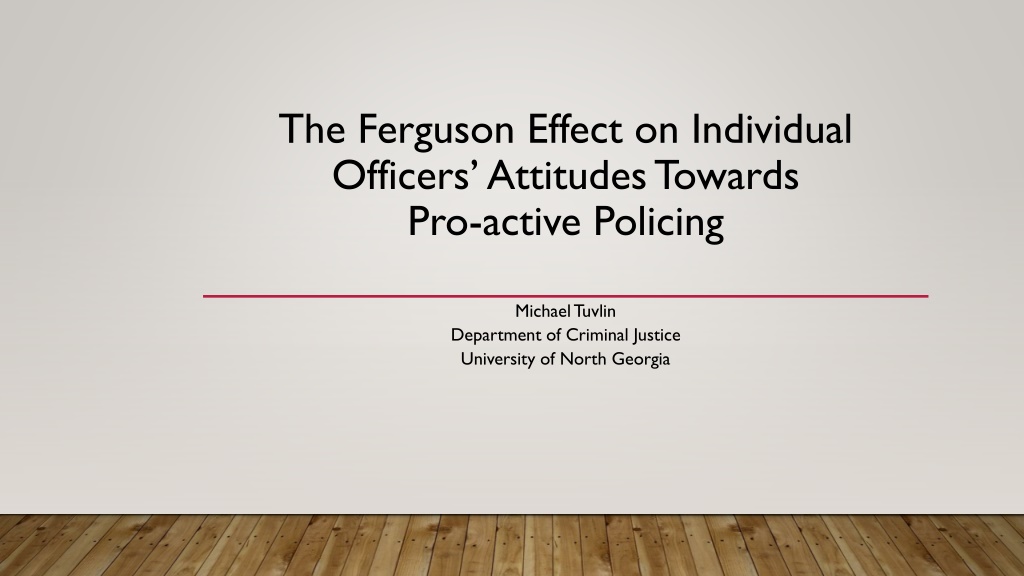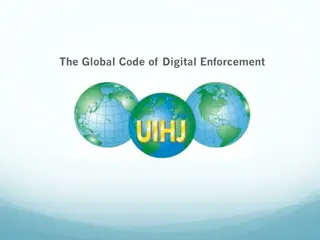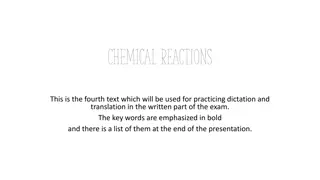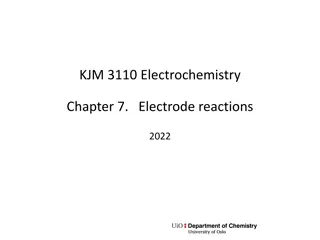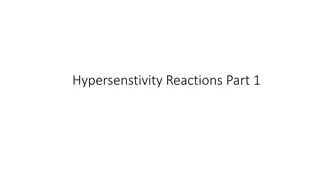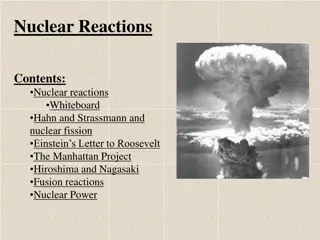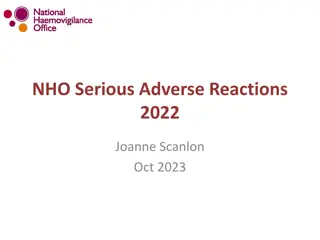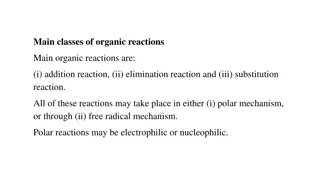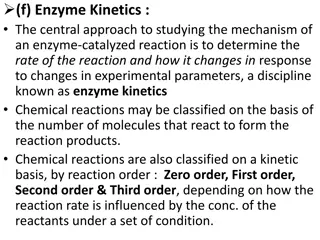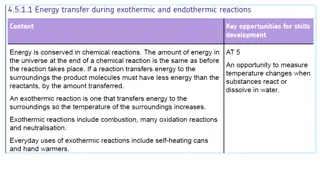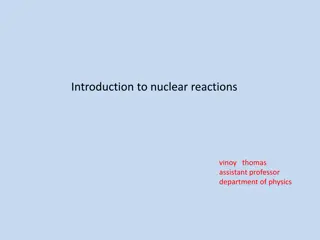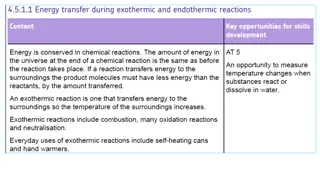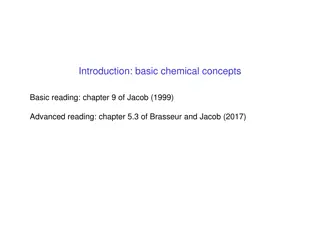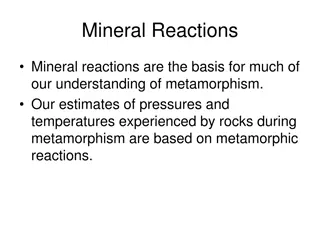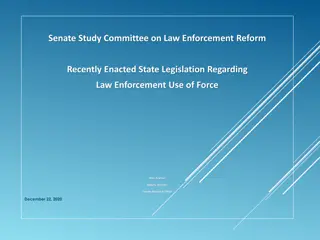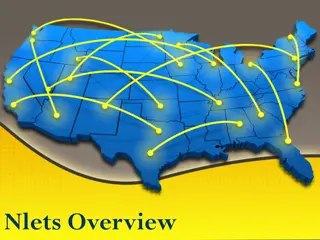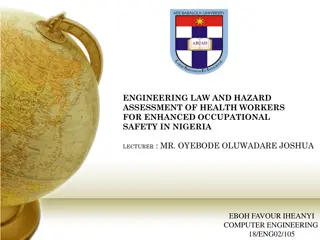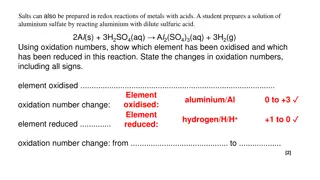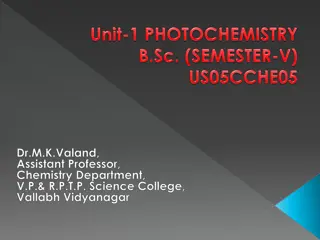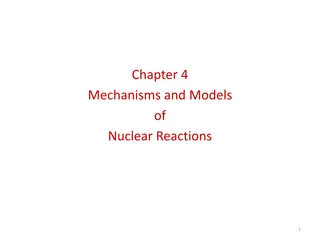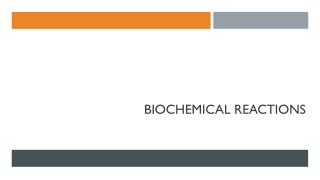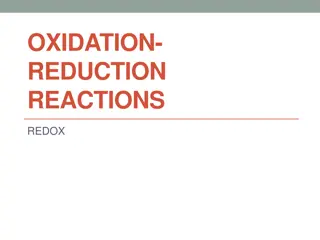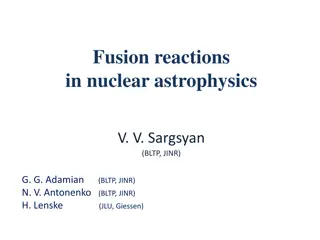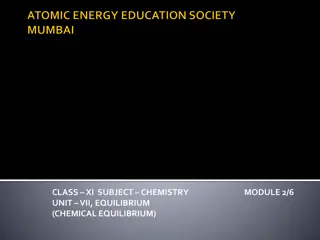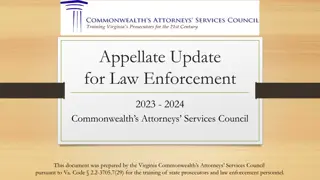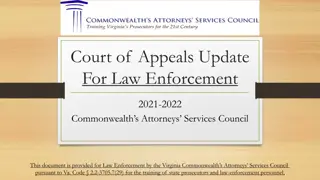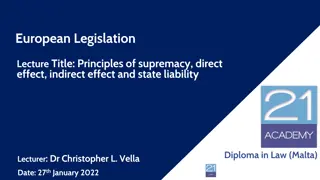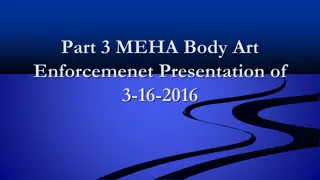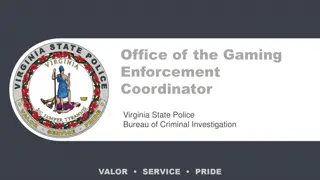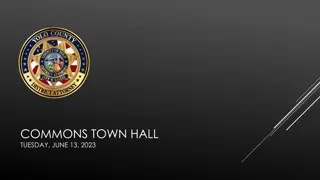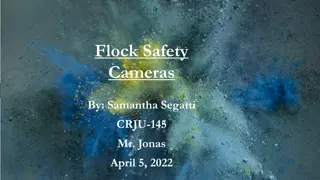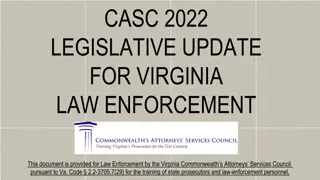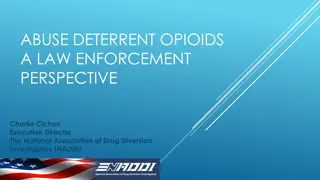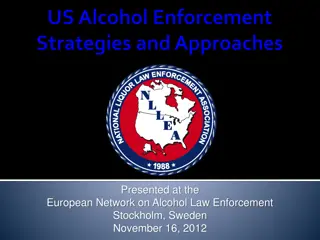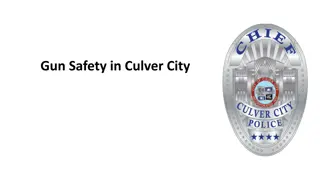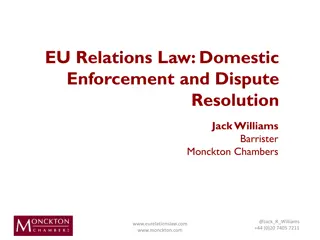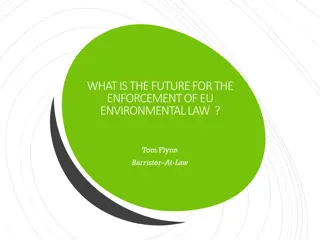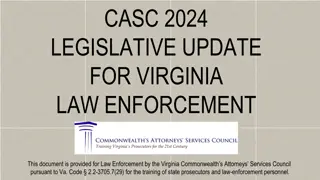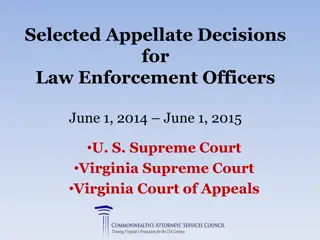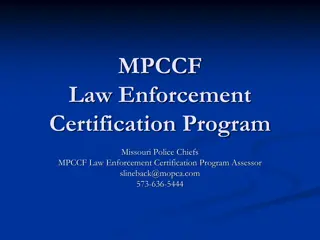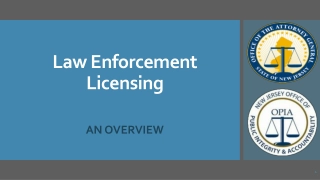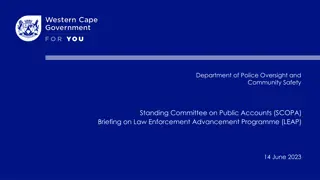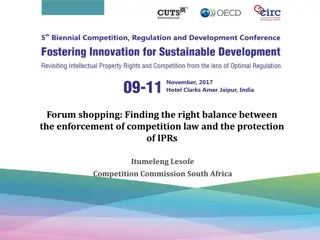The Ferguson Effect on Law Enforcement: Impacts and Reactions
The Ferguson Effect, stemming from the shooting of Michael Brown in 2014, describes a phenomenon where increased scrutiny on police leads to a decrease in proactive policing. This presentation outlines key events like the Ferguson shooting, Eric Garner's case, and the resulting protests and NYPD slowdown, highlighting the complex dynamics between law enforcement, society, and public perception.
Download Presentation

Please find below an Image/Link to download the presentation.
The content on the website is provided AS IS for your information and personal use only. It may not be sold, licensed, or shared on other websites without obtaining consent from the author. Download presentation by click this link. If you encounter any issues during the download, it is possible that the publisher has removed the file from their server.
E N D
Presentation Transcript
The Ferguson Effect on Individual Officers Attitudes Towards Pro-active Policing Michael Tuvlin Department of Criminal Justice University of North Georgia
WHAT IS THE FERGUSON EFFECT? 2 The Ferguson Effect is a term used to describe the notion that increased hostility and scrutiny of the police after the shooting of Michael Brown in Ferguson, MO in 2014 led to an increase in crime in major metropolitan areas of the United States. Typically, the Ferguson Effect is used to describe the phenomenon of less aggressive policing by the nation s law enforcement officers in order to avoid perceived negative scrutiny from department leadership, politicians, media, and society. Previously, the term depolicing, had been coined to explain the slowdown in proactive police work in the face of public hostility of law enforcement officers or dwindling department morale. 1
FERGUSON SHOOTING 3 August 9, 2014: Ferguson police officer Darren Wilson shot and killed teenager Michael Brown. Brown was unarmed. November 25, 2014: St. Louis Grand Jury declined to indict Wilson. November 30, 2014: Citing security concerns, Wilson resigned from Ferguson police force. March 4, 2015: Department of Justice Report Regarding the Criminal Investigation into the Shooting Death of Michael Brown by Ferguson, Missouri Police Officer Darren Wilson determined that the evidence did not support charging Wilson with a violation of federal law.
PROTEST THEMES SINCE THE FERGUSON SHOOTING 4
ERIC GARNER NEW YORK CITY JULY 17, 2014 5 Garner was arrested for illegally selling cigarettes. During the attempt to arrest Garner, a choke hold is used. After being cuffed, Garner repeatedly stated I can t breathe and later died. The Medical Examiner ruled manner of death as Homicide resulting from the choke hold. December 3, 2014: A Staten Island Grand Jury did not indict officers involved.
ERIC GARNER PROTESTS INCORPORATING HAND UP THEME FROM FERGUSON 6
NEW YORK POLICE DEPARTMENT SLOWDOWN 7 December 20, 2014: Two NYPD officers are ambushed and killed in their patrol car Citations drop 94% and arrests 66% in the week following the killings (compared to the same period in the previous year) NYPD unions admit that officers are responding to perceived poor treatment and lack of support from New York City Mayor7
FREDDIE GRAY DEATH IN BALTIMORE APRIL 12, 2015 8 Freddie Gray was arrested after a foot chase by Baltimore Police. Gray was placed, handcuffed but unsecured, into the back of a police transport wagon. During the transport, Gray suffered a spinal injury and was hospitalized before dying from his injuries a week later. The Medical Examiner ruled the manner of death as homicide due to acts of omission by the Baltimore Police. On May 1, 2015, Maryland State Attorney brought charges of murder, manslaughter, or assault against the six officers involved in Gray s arrest and transport. Between December 2015 and June 2016, one officer s trial ended with a hung jury mistrial and two were acquitted in bench trials. Charges were dropped against the remaining officers.
BALTIMORE PROTESTS AFTER DEATH OF FREDDIE GRAY (HANDS UP) 9
BALTIMORE POLICE AFTER FREDDIE GRAY PROSECUTIONS 10 May 2015: Shootings more than double compared to May 2014. Only 1,177 people arrested compared to 3,801 in the same month of 2014. The Baltimore Police Commissioner denied accusations of deliberate work slowdown by officers. The Police Commissioner acknowledged that officers are worried they'll be arrested, too, if they make a mistake while doing their job. 8
POLITICAL COMMENTARY ON THE FERGUSON EFFECT 11 The Obama administration repeatedly denied that there is any evidence of a Ferguson effect , while FBI director James Comey reiterated his suggestion that violent crime was increasing because of a chill wind blowing through American law enforcement over the last year. 2
PREVIOUS RESEARCH 12 No evidence was found to support a systematic post-Ferguson change in overall, violent, and property crime trends; 3 there appears to be a relationship between reduced motivation as a result of negative publicity and willingness to partner with the community. 4 Police supervision whose leadership is perceived as fair and just are more likely to shield their officers from the negative work-related outcomes that can follow recent Ferguson-type publicity.5 The findings also suggest that police officers engage in depolicing out of protest, frustration, or fear. It is an individual or small group response to outside event(s) which has the potential to spread throughout a department and to officers in other departments.6
METHODS 13 Online survey was sent to all officers of a medium sized (n=127) police department in the metropolitan Atlanta area. Participation was voluntary and responses were anonymous Slightly less than half of those contacted (n=58) responded
RESULTS 14
SUMMARY OF FINDINGS 16 96% of officers agreed that proactive policing reduces crime. Selected comment(s): Police have been involved in self-initiated activity, but not as much as we used to. Due to increasing tensions, and lack of manpower in departments across the nation, it is quickly becoming less safe to proactively police.
SUMMARY OF FINDINGS 17 93% of officers agreed that media depiction of law enforcement has been negative since the Ferguson shooting. 52% of officers agreed that the negative portrayal of law enforcement by the media has affected their motivation to engage in proactive policing.
SUMMARY OF FINDINGS 18 Selected comment(s): Media has always focused on any bad LE story - but the increase in social media and immediate media has elevated the effects PC and Liberal media has destroyed LE forever in the US. Long term effects will be catastrophic. My proactive initiatives have been greatly reduced, probably by at least 30-40% due to the negative attention and false narratives. The media does not affect the way I do my job.
SUMMARY OF FINDINGS 19 60% of officers agreed that citizen support of law enforcement has decreased over the past two years. 67% of officers agreed that that their perceptions of citizen support has affected their motivation to be proactive.
SUMMARY OF FINDINGS 20 Selected comment(s): I work to do a good job no matter what - negative portrayal does affect me some, but not much I believe the citizen support has remained about the same. However, the likelihood of the media reporting our actions from a neutral/unbiased approach is where the major change has been seen. So, the support or lack of support from citizen has not affected my motivation to proactively police
DISCUSSION / FUTURE RESEARCH 21 Expand the survey pool and refine questions. Complete statistical analysis of results. Correlation between officers attitudes and reduction in arrests, stops, tickets, etc. Correlation between officers attitudes and crime statistics over a period of time
REFERENCES 22 1 Oliver, W. M. (2015). Depolicing: Rhetoric or reality? Criminal Justice Policy Review, 0887403415586790. 2 https://www.theguardian.com/us-news/2016/may/13/ferguson-effect-real-researcher-richard-rosenfield- second-thoughts 3 Pyrooz, D.P., Decker, S.H., Wolfe, S.E., & Shjarback, J.A. (2016).Was there a Ferguson effect on crime rates in large U.S. cities? Journal of Criminal Justice, 46,1-8. 4 Wolfe, S.E.; Nix, J. (2016). The alleged Ferguson Effect and police willingness to engage in community partnership. Law and Human Behavior, 40(1), 1-10. 5 Nix, J ;Wolfe, S.E. (2016). Sensitivity to the Ferguson Effect: The role of managerial organizational justice. Journal of Criminal Justice 47, 12 20.
REFERENCES (CONT) 23 7 Celona, L., Cohen, S., & Golding, B. (2014, December 29). Arrests plummet 66% with NYPD in virtual work stoppage. New York Post. Retrieved from http://nypost.com/2014/12/29/arrests-plummet-following-execution-of-two-cops/ 8 http://www.baltimoresun.com/news/maryland/bs-md-arrests-decline-20150613- story.html
ACKNOWLEDGEMENTS 24 The author would like to thank Dr. Jennifer Allen and Professor Matilda Foster for their insight and generous assistance in preparing this presentation.
25 QUESTIONS?
26 CONTACT INFORMATION Michael Tuvlin Assistant Professor Department of Criminal Justice University of North Georgia 706-864-1871 (Office) Michael.Tuvlin@ung.edu
